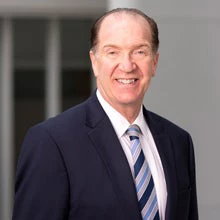 © G20领导人峰会
© G20领导人峰会
At the G20 Leaders’ Summit in Osaka Japan, I highlighted some of the challenges the world is facing including slow growth rates and subdued investment. I also expressed optimism in addressing these challenges through strong leadership and policies that raise living standards. Below are my remarks delivered at the Summit.
Thank you, Prime Minister Abe, for being such a gracious host.
It is a great pleasure to be here during the new era of Reiwa, “Beautiful Harmony.” And it’s a true pleasure that the World Bank and Japan have maintained harmony since the early 1960s, notably when the World Bank made a loan to help fund the construction of the bullet train ahead of the 1964 Tokyo Olympics. I’ll ride that train tonight as I go to Tokyo. The bullet train and Japan’s many other advances enhanced connectivity and helped lead to Japan’s fast growth and its successful graduation from World Bank lending soon after the Olympics in 1966.
I would like to speak optimistically about reducing inequality and realizing inclusive and sustainable growth around the world, but I must start with addressing our current reality.
In much of the world, current growth rates are too slow, and investment is too subdued to increase median incomes. For many nations, poverty reduction has slowed or even reversed. The 2030 Sustainable Development Goals (SDGs) are at risk of not being met.
Many countries need a much bolder agenda for boosting private sector growth to generate more and better jobs.
Many countries need a much bolder agenda for boosting private sector growth to generate more and better jobs. This entails major changes in the business climate so that the private sector can compete with the state on a level playing field and generate profit and innovation.
I am deeply optimistic that strong, enlightened leadership and policies work to raise living standards, but the challenges I mentioned are immense.
At the World Bank, we are focused on helping countries achieve good policies and good outcomes for their people , as Japan did with connectivity and human capital.
We have strong financial ties to each of you around the table, and we look forward to building on these connections. I invite your support for a large IDA19 replenishment and the completion of the capital increase for the International Finance Corporation (IFC) and I thank you all for the clear statement in the communique on this. These will help achieve good policies.
For developing countries, we are actively identifying changes in the private sector environment that will attract investment and enable higher living standards and better lives.
We are working in fragile states, such as the Sahel and the Horn of Africa, to help countries build stronger foundations so that young people are more able to stay rather than seeking to immigrate.
Giving women better access to economic opportunities is critical to eliminate differences in living standards between men and women. This is why We-Fi is so important and we are proud to celebrate its two-year anniversary here in Osaka.
As everyone here knows, addressing inequalities and realizing an inclusive and sustainable world requires jobs, education, healthcare, attention to the environment, and robust commerce – trade among neighbors and nations. We will continue working with all of you on these challenges.
Thank you, chair.
This post was originally published on LinkedIn.


Join the Conversation